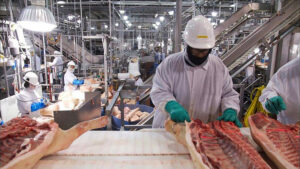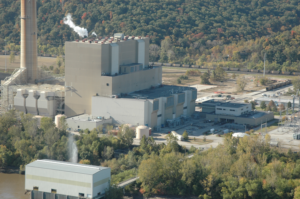18:32
News Story
Missouri Gov. Mike Parson signs bill to kill south Kansas City landfill
The legislation’s passage and the governor’s signature are key to an agreement to scrap the proposed 270-acre project
Gov. Mike Parson on Monday signed legislation designed to keep a landfill from moving into south Kansas City, ending a more than year-long effort by nearby communities to stymie the project.
In a news release, Parson called the legislation “a win for property rights across the state of Missouri.”
“This commonsense measure will ensure homeowners have more of a say in what developments are allowed in their communities,” Parson said.
The legislation targets a plan by KC Recycle & Waste Solutions to build a landfill at Kansas City’s southern border with Raymore. For more than a year, Raymore and other suburban Kansas City municipalities have pushed legislation designed to prohibit the proposed landfill, arguing it would hurt the environment, property values and residents’ health.
Raymore Mayor Kris Turnbow said in a statement Monday that the governor’s signature brought “relief.”
“That’s the only way to describe how our community feels,” Turnbow said. “The governor’s signature lifts the veil that has hung over our city for nearly two years since we first learned of this proposed development.”
KC Recycle & Waste Solutions, owned by Jennifer and Aden Monheiser, planned to build the landfill at a site just south of Missouri Highway 150 near Kansas City’s border with Raymore. The 270-acre facility would have been less than a mile from Creekmoor, a golf course community in Raymore with homes priced up to $1 million.
Under existing Missouri law, a landfill can’t be built in Kansas City within half a mile of an adjacent city unless that community approves the project. The city of Raymore and fellow critics of the project wanted that buffer zone increased to one mile.
Rep. Mike Haffner, a Pleasant Hill Republican, took up their cause and sponsored legislation to increase the buffer zone in the Missouri House. In a statement on Monday, he said Parson’s signature on the legislation was a “testament to our commitment to fighting for the rights of all Missourians.”
“This legislation is a victory for the people of Missouri, who have spoken loud and clear about the need to defend their property rights and preserve the well-being of their communities,” Haffner said. “I support economic development, but not at the expense of our families, small business owners and their livelihoods.”
Jennifer Monheiser initially pushed back against the legislation, arguing increasing the buffer zone would change the rules on a local business that had already begun purchasing land and making plans for the facility.
The legislation was first introduced last year and cleared the Missouri House, but couldn’t get past a filibuster in the Senate. The same thing happened earlier this legislative session.
But last month, Raymore city officials revealed they had struck a deal wherein the Monheisers would scrap their project, provided that the buffer zone legislation passed and received Parson’s signature.
In an interview with The Independent, Monheiser said she was “glad there’s a resolution that we can all live with.”
“It’s not the outcome that we were hoping for, but we (are) happy that we can now maybe work with those communities to find a solution for the waste problem that we have here in Kansas City,” Monheiser said.
As part of the agreement, which the Raymore City Council approved unanimously, the city will pay more than $3.7 million to the Moheisers, including $440,000 for the city to acquire one of the land parcels currently owned by the developers. KC Recycle & Waste Solutions also agreed to adopt restrictive covenants that would keep the land from being used for a landfill in the future.
Monheiser said the $3.7 million payment was not enough that her business would profit from scrapping the proposed landfill and it “did not make us whole.” She did not detail how she and the city arrived at the figure for the payment, but she said her business had incurred costs for engineering and legal services and purchased land. She and her husband, she said, also invested considerable time into the project.
“I’m not exactly sure…why we landed on that exact number, but it was a number that was thrown out there and that ultimately we all agreed to, and so we just moved forward with that,” she said.
Aside from the parcel that will be sold to the city of Raymore as part of the agreement, Monheiser said she wasn’t sure yet what she would do with the land purchased to build the landfill. She said she would look at options to develop it, but it would not become any sort of waste management facility.
Monheiser said she’s still committed to finding a solution to garbage disposal in the metropolitan area, but the south Kansas City site was the only one she had found that appeared feasible.
Our stories may be republished online or in print under Creative Commons license CC BY-NC-ND 4.0. We ask that you edit only for style or to shorten, provide proper attribution and link to our website. AP and Getty images may not be republished. Please see our republishing guidelines for use of any other photos and graphics.





